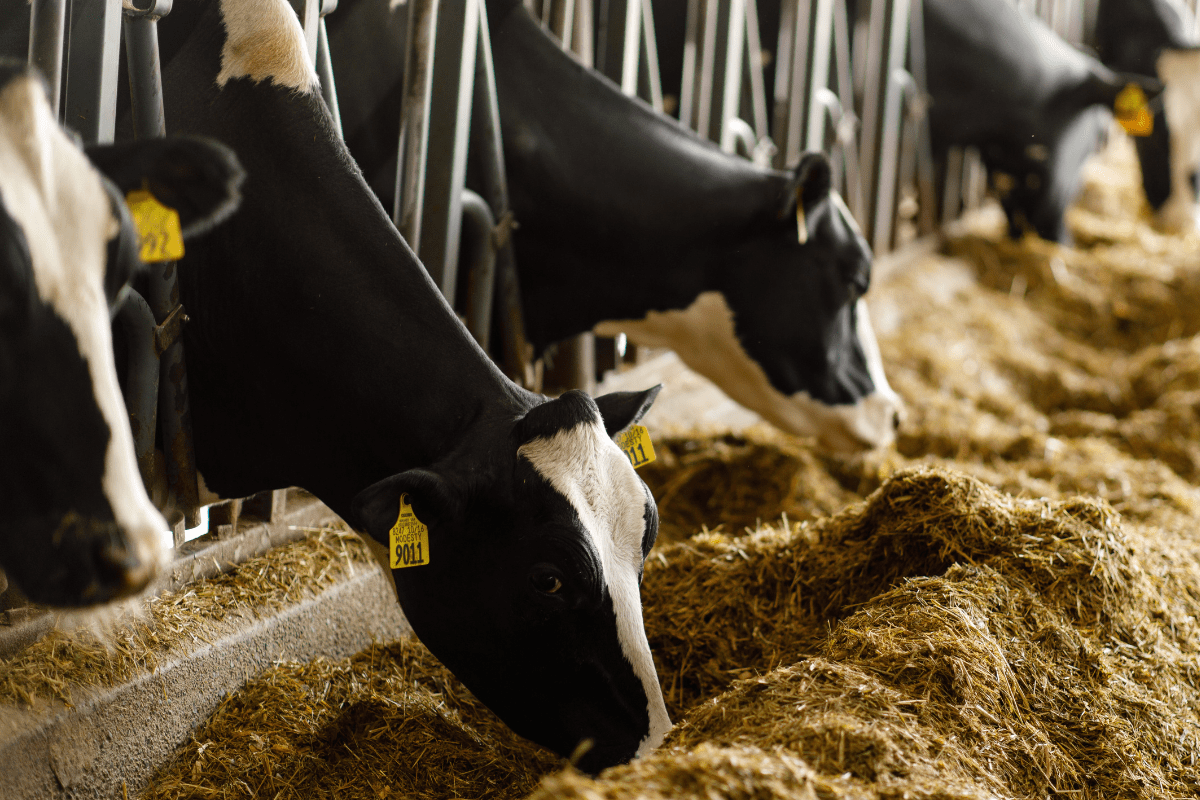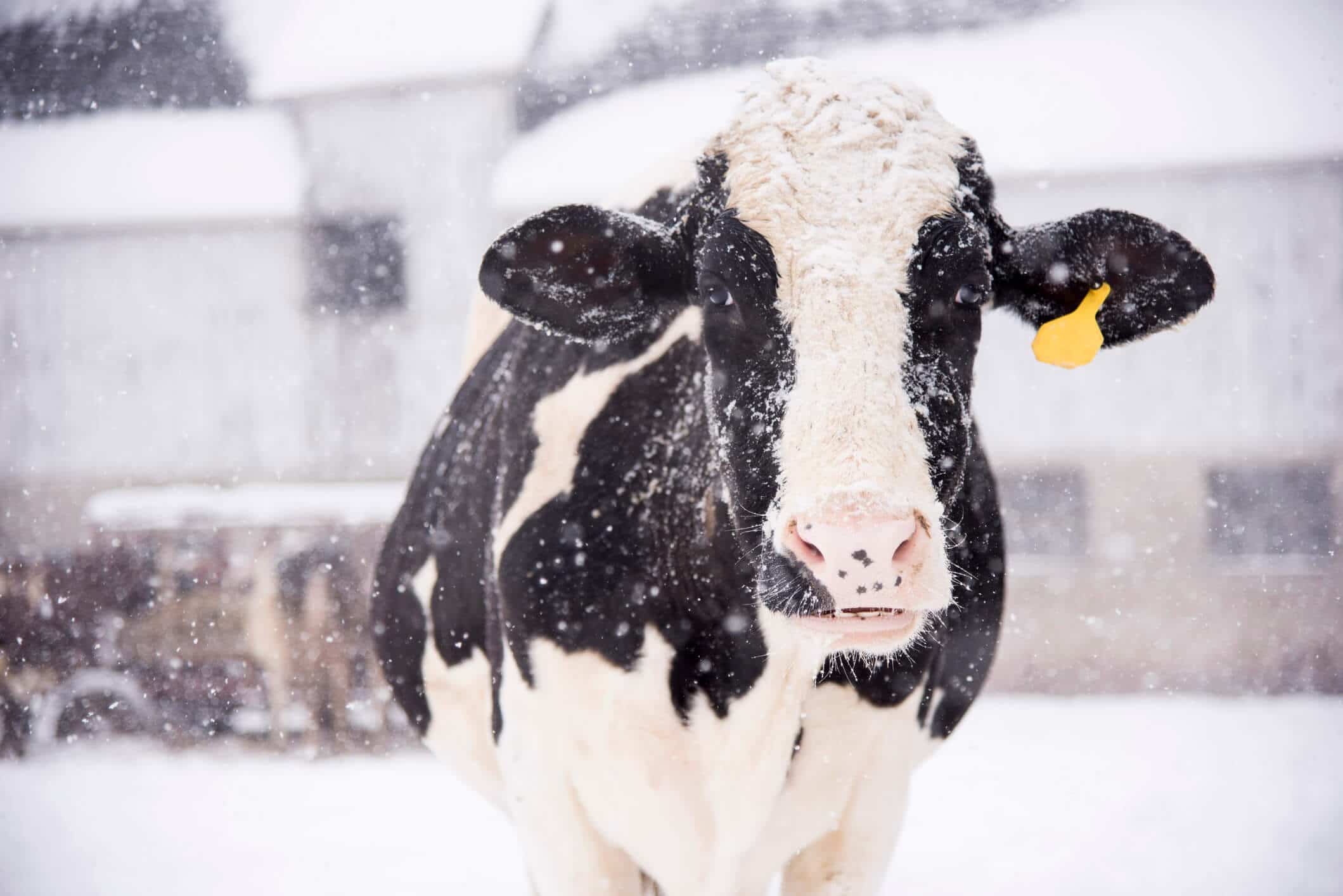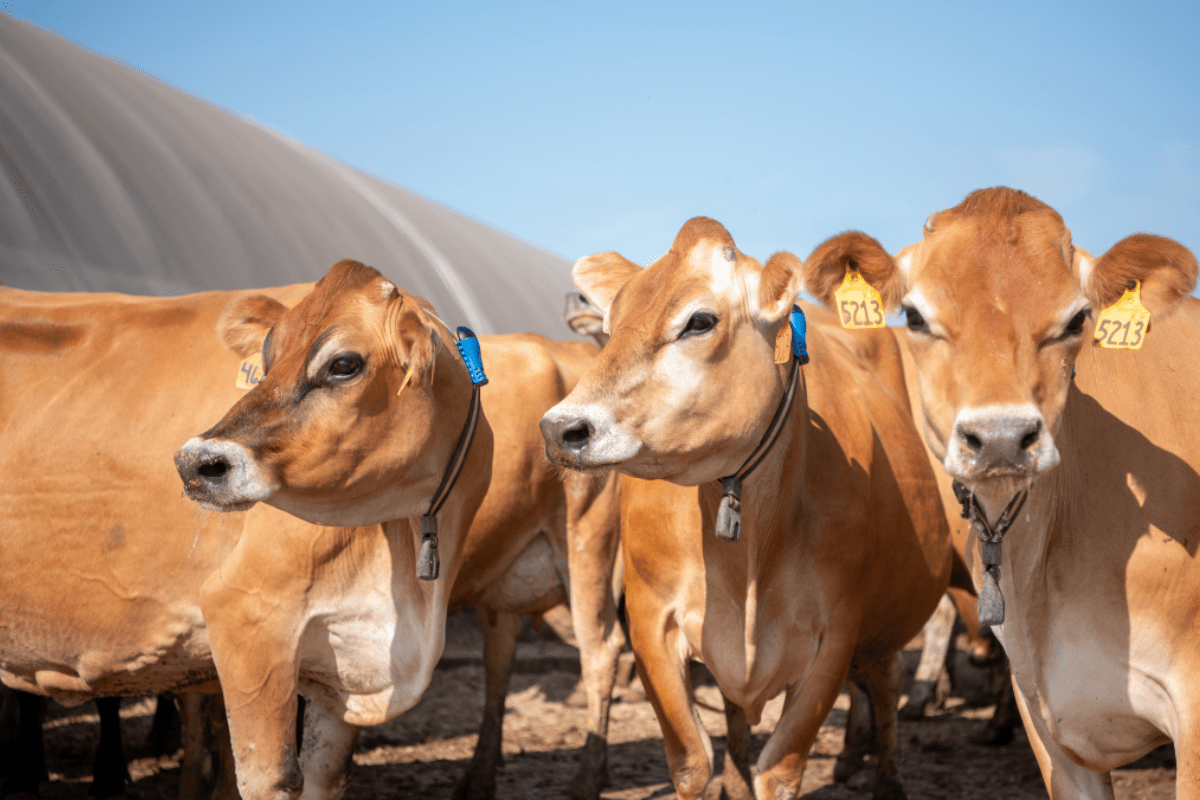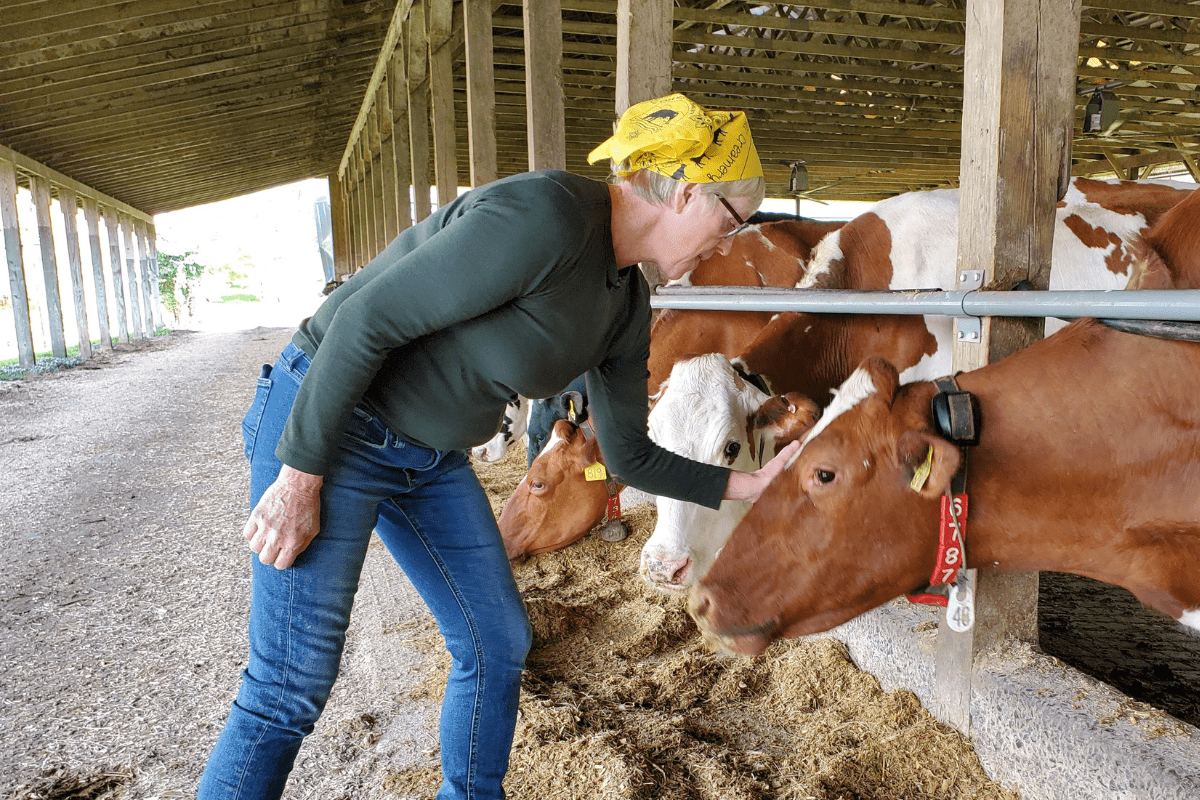Caring for their land and animals is second nature for dairy farmers. On April 22, the day designated for celebrating Earth Day, dairy farmers quietly go about their daily routine. They’re making sure their cows are milked, their land is tended to, and that they’re producing a nutritious product. Not just on Earth Day, but every day.
“Farmers are environmentalists by nature. The land is our livelihood and transcends our time here. We want to protect it for future generations to continue the legacy. As time goes on, we build knowledge and become better stewards along the way,” says John Noble, a sixth-generation dairy farmer at Noblehurst Farms in Linwood, New York.
Thanks to innovative farming practices, a gallon of U.S. milk in 2017 required 30% less water, 21% less land, and a 19% smaller carbon footprint than it did in 2007.
At Noblehurst Farms, everything starts with the land, says John. “We have always strived to maintain good soil health and fertility. Most importantly this involves rotating crops – corn, alfalfa and small grains. The alfalfa adds nitrogen back into the soil.” They also try to disturb the soil as little as possible. “Over time we adopted limited tillage practices. Gone is the plow, replaced by a tool that disturbs only the trench for the seed,” says Noble. They also plant cover crops on the farm, which Noble says helps minimize erosion during the winter.
The next generation at Noblehurst Farms has built onto John’s legacy with their own sustainable farming initiatives like an anaerobic digester. “I’m going to give a lot of credit to the next generation of our business. My son, Chris, and his business partner saw an opportunity to divert food waste from landfills and harness energy.”
The farm’s anaerobic digester takes manure and combines it with food waste from grocery stores and universities, and even the annual butter sculpture from the New York State Fair, to create energy. That energy is sent back to the electrical grid, providing enough watts to run the farm’s operations and power more than 300 homes. This ‘waste to watts’ technology was born out of Chris Noble’s desire to farm with the greatest level of care for the environment. “It’s truly quite the recycling process,” says John Noble.
John Noble is quick to point out that there’s lots of dairy farmers doing innovative things. There’s many ways dairy farmers incorporate sustainable practices each day that most people never consider when they reach for a glass of milk, add cheese to their recipe or eat a spoonful of yogurt. He stresses that sustainability practices vary from farm to farm. “Each farm is entirely different. Dairy farms have different financial situations, different land resources, different climatic situations and other considerations to make.” But make no mistake—farmers in general are conservationists, says Noble. “It makes good sense.”
And to Noble, it also makes good sense to partner with the environmental community. Noble serves on the board of directors of Genesee RiverWatch. “My experience with Genesee RiverWatch and other environmental groups has taught me our goals are remarkably the same.” Noble finds it intellectually stimulating to interact with people with entirely different perspectives. “You have the opportunity to learn and to educate. If you can take a minute to view the perspectives that others have, you have enriched yourself,” says Noble. Collaborating together, for the good of the planet.
It’s been 53 years since the first-ever celebration of Earth Day. At the time, Noble was a sophomore in high school. “It was the time of the Vietnam War and people were being very conscious about being socially responsible. That Earth Day, on April 22, 1970, the neighbor girl and I walked to school that day, picking up roadside garbage.” Noble says it was a 3-mile walk and they had several bags filled. Now more than 50 years later, Noble’s grandchildren take turns on cleanup duty. “If we can all do a little bit for the environment, we will leave it a better place for the next generation,” says Noble. Earth Day makes everyone more mindful of that. “But as farmers that make their living off the land,” says Noble, “we think about our impact on the earth and the land every day.”




